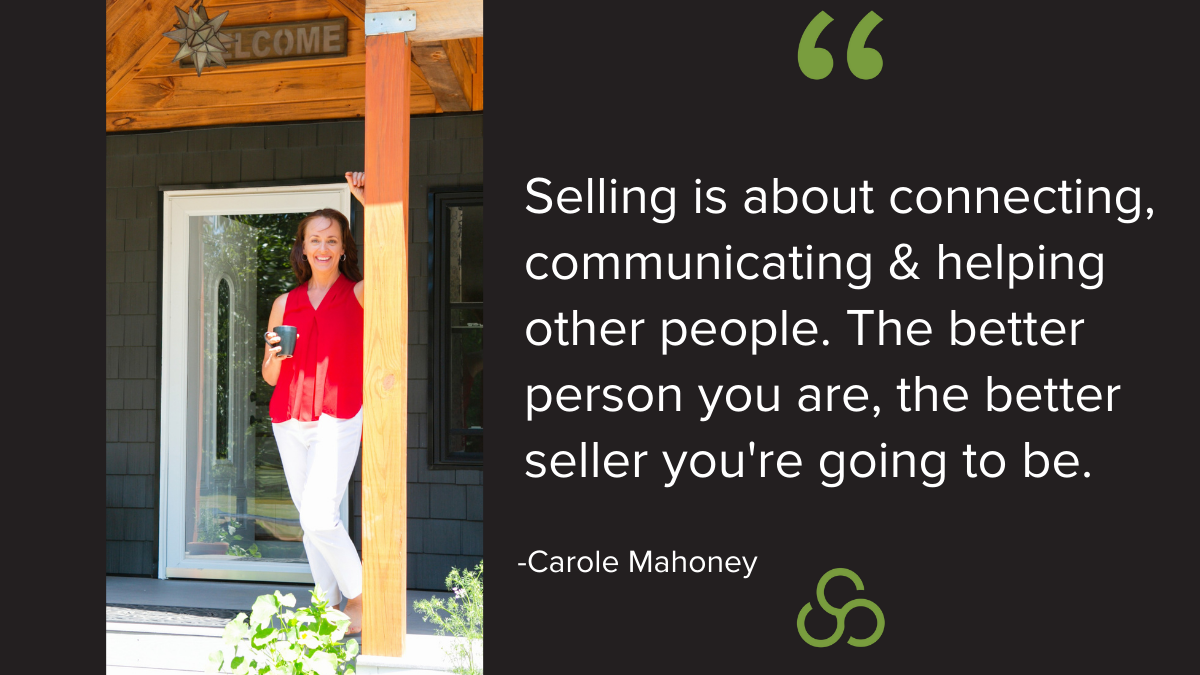
Rather than a linear process, I see the collaborative selling model as more layered and cyclical. Like, an onion. You peel back the layers of an onion.
What's the difference between consultative selling and #buyerfirst selling?
So imagine that you're going to the doctor. They ask you a ton of questions, then write you a script and a prescription and then send you on your way.
Do you feel heard? Are you bought into the solution that they just prescribed to you? And how likely are you to follow their advice?
Now imagine that you go to the doctor, and they ask you some questions, and you give your answers. They ask you some more questions based on your answers. Then the doctor thinks and answers and says, "Well, let's do this. And let me understand a little bit more about that".
Then the doctor asks, "So what do you think of this? How doable is this read? What's your daily routine like? You know your body better than anyone else. How do you think that this is going to work for you?"
Together, you and your doctor come up with a plan. How likely are you to do what the doctor suggested? You'll probably be more likely to do it.
This is the difference that I see between consultative selling and collaborative selling or #buyerfirst selling.
The intent and design of consultative selling are to always put the customer first.
I get it.
But the issue I see is in the execution of it. What's happening is that when sellers try to be consultative, it comes out like they have to tell and educate and prescribe because they are the reported experts. It all becomes all about them.
#Buyerfirst selling is different because it's gonna require a mindset shift from telling to asking, from knowing to learning. And from looking at selling as something we do to others.
- Dig into pain points: create urgency
- Overcome objections: is just something we do with them
- Uncover challenges: discover compelling reasons
- Understand the roadblocks
you don't have to know it all in collaborative selling & #BuyerFirst selling.
In my opinion, in consultative selling, you are the seller, consultant, teacher, and prescriber of solutions.
In collaborative selling and #BuyerFirst selling, you do not have to know it all. Because let's just face it, you don't know it all. None of us do. And as soon as you think you do, you will be irrelevant.
The other difference I see in consultative selling is that once you reach the point that the buyer becomes a customer, most of us are through with selling. It then moves on to an account, project manager, or customer success team.
I often describe the process as driving to a destination in the fog. Your buyer is your GPS in telling you which way to turn and when. If you take a wrong turn, your buyers can give you alternate routes to reroute you. But only if you're paying attention and actively listening.
Active selling never actually stops
We know this is how it should be, but it's not how it is. Because when we're collaborating with our buyers, the environment is always changing.
John Matteis said that buyers' needs will always constantly change and move. And that we have to be able to document and understand those changes and trends so that we can evolve and change with them and summarize.
That's what collaborative selling is all about. It's not about prescribing solutions because you think you know best. It's about moving in time with your buyer.
It's only four steps. Not to be confused with easy. The reality is that all you have to do is become a very good active listener and ask great questions.
We've said that the foundation for all of this is the four steps:
- Shut up.
- Stop talking.
- Be fully present and listen.
- Repeat what you heard and then ask a question to better understand the detail of what you just heard.
Those are the simple, easy, well, simple steps, not easy for everybody. Not when our brains reward us for talking about ourselves.
"Why do so many incompetent men become leaders?"
(Book by Dr. Thomas Chamaro-Premuzic, a professor at the University College of London.)
I love the title of this book! Don't you just love that title? And he writes about mindfulness's crucial role on our ability to listen actively. And it's so difficult, though, because society rewards us for being the loudest, the most self-promotional.
He said in a recent article that if you wanna be a better listener, decades of research suggest that you have to work on four areas:
- Focus
- Empathy
- Self Control
- Inclusion
The bottom line is how or even if we do something, depends on our mindset towards the task.
If we're gonna change our results and evolve with our buyers in the times, we have to first change our mindset towards our buyers and customers and how we interact with them. The purpose is so that we can then change those interactions.
Selling is about connecting. It's about communicating. It's about helping other people. The better person you are, the better seller you will be.
That's how I see the difference...or differences, I should say, between consultative selling and buyer first or collaborative selling.
JOIN CAROLE MAHONEY, AUTHOR OF THE UPCOMING BOOK "BUYER FIRST: HOW TO SELL THE WAY PEOPLE BUY" LIVE ON YOUTUBE, LINKEDIN & FACEBOOK ON THE 3RD TUESDAY OF EVERY MONTH AT NOON EST
And ask her anything about how to shift our mindsets, develop the skillsets, and align how we sell with buyers.







